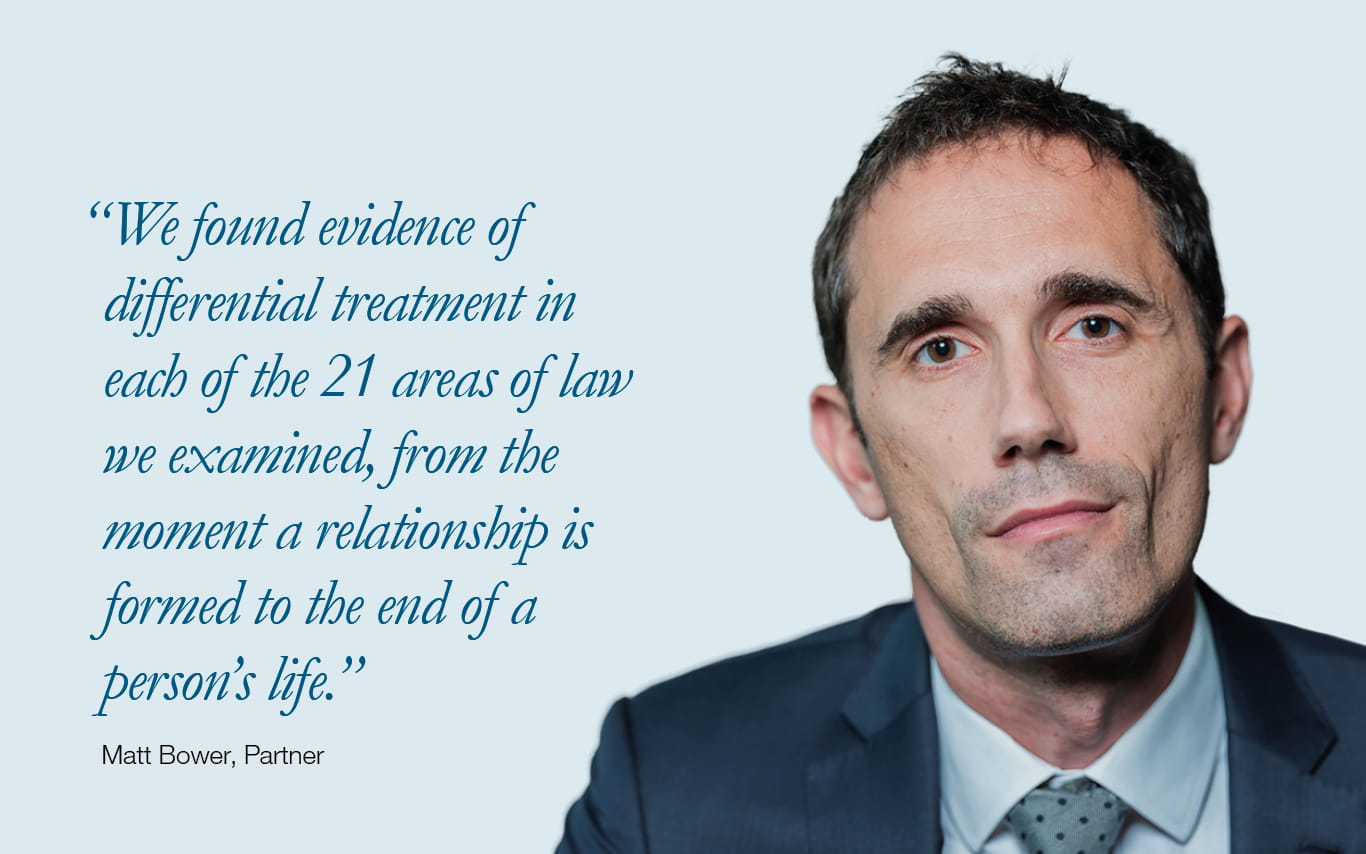Preferential treatment of heterosexual married couples in Hong Kong
Headlines in this article
Related news and insights
News: 10 October 2022
Hope and Homes for Children secures major breakthrough in mission to close all orphanages
News: 03 October 2022
News: 20 September 2022
Charities in Northern Ireland benefit from Allen & Overy Foundation
News: 13 July 2022
In the largest pro bono project led by our Hong Kong office, earlier this year A&O published a report showing how people in heterosexual marriages receive preferential treatment under Hong Kong law compared with those in alternative relationships, including civil partnerships, cohabiting couples and same-sex marriages.

Partner Matt Bower led the team from Hong Kong, with international support from A&O’s LGBT+ network, A&Out, plus Peerpoint consultants, volunteers from local Hong Kong firms and a major client.
The research, commissioned by the Equal Opportunities Commission (EOC), analysed Hong Kong legislation and government policies that discriminate against couples not recognised as ‘married’ – marriage between opposite-sex couples being the only voluntary relationship recognised under Hong Kong law.
“We found evidence of differential treatment in each of the 21 areas of law we examined,” Matt says, “from the moment a relationship is formed to the end of a person’s life.”
For example, heterosexual married couples are entitled to benefits, such as preferential tax treatment, access to public housing and the ability to use reproductive technologies, that individuals in other relationships are not. Failure to recognise alternative relationships also impairs the way some laws can operate as intended and makes it harder for authorities to enforce certain criminal laws too.
A&O’s report has generated significant interest, with the Equal Opportunities Commission in Hong Kong describing it as “excellently informative”. A subsequent panel discussion hosted by A&O and prominent spokespeople on diversity and equality has looked further at the prospects for reform and how businesses can support LGBT+ employees.
“Our hope now,” says Matt, “is that this positive response from so many organisations and individuals will prompt further discussion on whether and how reform can be pursued.”
Read the full report here.
This article is taken from the new edition of our pro bono and community investment magazine, Increasing Access.
Download the full magazine below

